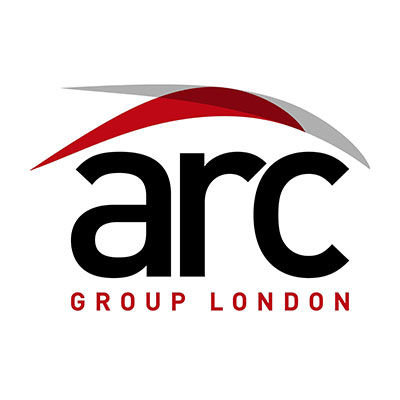
Real Estate Apprenticeships
Dreaming of a career in real estate and want to get stuck in the moment you leave school? An apprenticeship in real estate will give you the skills you need to work in an increasingly exciting sector.
The UK property industry is HUGE and generates around £100 billion annually across more than 100,000 businesses, employing over 1.2 million people. There’s so much opportunity for young people like you to build successful and long-lasting careers. Read on to find out how you could lay the foundations for a thriving career in real estate.

What is a real estate apprenticeship?
A real estate apprenticeship combines paid work experience with relevant industry qualifications. Instead of studying full-time at university or college, you'll develop professional skills on the job while working toward nationally-recognised certifications. To break it down, you’ll:
Work as a full-time employee of a company, with real responsibilities
Spend 80% of your time learning on-the-job and the other 20% studying towards a qualification
Earn a salary with benefits like paid holidays and employee perks.
You'll typically be at work from Monday to Friday (9am to 5:30pm) and some weekends with one day dedicated to your education. Some employers will give you blocks of time off to spend with your training provider to study.
How long do real estate apprenticeships last?
Your apprenticeship length will depend on the level you’re at. These are:
Level 2 (Intermediate) - 12 to 18 months
Level 3 (Advanced) - 12 to 24 months
Level 4/5 (Higher) - Two to five years
Level 6/7 (Degree) - Three to six years
Here’s what this apprentice had to say about their time at the Valuation Office Agency.

“I thoroughly enjoyed my programme. My workplace (VOA) was incredibly supportive, and my provider (JACE) was consistently on hand to guide me when it was required. I was able to learn the required content at my own pace and probe where I needed to, I look back on this experience fondly.” Level 3 Valuation Surveyor, Valuation Office Agency
What types of real estate apprenticeships are there?
If selling houses isn’t your thing, real estate apprenticeships are actually quite diverse. Generally, the property industry can be split into four types:
RESIDENTIAL
Properties where people live. Homes, apartments, and housing developments. You’ll work directly with families and individuals helping them find their dream home or selling their current one. Some jobs you can do in this sector include:
Estate agent. Showing properties, negotiating deals, and guiding buyers through the process
Property manager. Maintaining rental properties, handling tenants and ensuring homes are in good condition
Residential surveyor. Inspecting homes, identifying issues, and providing detailed reports for buyers and agencies.
COMMERCIAL
Business properties including offices, shops, hotels, and medical centers. You'll support businesses in finding spaces from start-up offices to major retail developments. Jobs in this sector can include:
Commercial agent. You’ll match businesses with the right properties and negotiate lease agreements
Property investment analyst. Researching market trends and helping investors make smart decisions
Facilities manager. Ensuring commercial buildings run smoothly with proper maintenance and services.
INDUSTRIAL
Manufacturing spaces like factories and warehouses that support production. You'll play a vital role in keeping supply chains moving by managing the spaces where goods are made and stored. Some roles you could do include:
Industrial agent. You’ll specialise in large-scale properties like distribution centres and manufacturing facilities
Logistics coordinator. Managing property requirements for supply chains and ensuring warehouses are used well
Development surveyor. Planning and looking after the construction of industrial complexes.
LAND
The sale of land for purposes such as developments, agriculture and conservation. You'll work on projects that create communities and landscapes, from housing developments to environmental conservation areas. Roles in this sector can include:
Land agent. Buying and selling plots for development, farming or conservation projects
Planning consultant. You’ll navigate regulations and secure permissions for land development projects
Rural surveyor. You’ll specialise in agricultural land, managing estates and supporting farming businesses (like Charlie on Clarkson's Farm!).
There’s so much you can do! Property businesses and real estate agencies are looking for talent across various roles that aren’t just about property. Here are a few more:
Technical Engineering
Data Analytics
Chartered Surveying
Human resources
Housing/Property Management
Marketing, Sales and PR
Accountancy.
Can I become an architect with a real estate apprenticeship?
While property and architecture are connected fields, becoming an architect requires a specific architecture apprenticeship as they're different career paths with different training routes.
Architecture apprenticeships are degree apprenticeships (Levels 6 and 7) that let you earn while you learn. You'll typically need:
A creative portfolio showing your design skills and thinking
Five or more GCSEs and three A Levels (or equivalent qualifications)
For Level 7 degree apprenticeships, you'll need an existing ARB (Architects Registration Board) Part 1 qualification
Want to explore architecture apprenticeships further? The Royal Institute of British Architects website has all the details you need to get started on your architecture journey.
Read Real Estate Degree ApprenticeshipsWhich companies could I work for?
Real estate apprenticeships don’t just happen at your local estate agency. There’s a whole range of employers out there that offer apprenticeships in property.
If a career selling real estate is for you, all of the biggest companies in the game (like Savills, CBRE and JLL) offer top-tier programmes. Other companies like TfL, The Co-Operative and even the NHS all offer real estate apprenticeships too:

I've developed my financial and problem-solving skills, improving accuracy in managing property accounts. My communication has strengthened through working with surveyors and colleagues, and I’ve gained confidence in adapting to challenges. Additionally, mentoring new starters has helped me develop leadership skills and a deeper understanding of my role. Level 2 Client Accounts Apprentice, Savills
Discover what it’s like to be a property apprentice. Read our apprentice-written reviews:
READ REAL ESTATE APPRENTICESHIP REVIEWSWhat qualifications do you get as a real estate apprentice?
Every apprenticeship comes with a national qualification recognised throughout the industry. These credentials will make sure that you understand and meet industry standards. You’ll become a trusted employee, allowing you to work anywhere once you complete your apprenticeship.
The type of qualification you work towards will depend on the area and level of apprenticeship you do, for example:
A Level 3 Apprenticeship in Housing/Property Management will earn you a Level 3 CIH (Chartered Institute of Housing) certificate.
During a Level 6 Chartered Surveying degree apprenticeship, you’ll work towards ‘chartered status’ awarded by the Royal Institute of Chartered Surveyors (RICS). Have a read of our guide to Property Degree Apprenticeships to find out more.
Loads of apprenticeships are accredited by professional bodies, which can also come with membership giving you access to exclusive credentials, industry recognition and professional networks galore. Some other professional bodies include:
What GCSEs do I need for a real estate apprenticeship?
Entry requirements depend on the scheme you’re applying to. As a general rule:
LEVEL 2
Two or more GCSEs graded at levels 9 to 4 (A* to C)
LEVEL 3
Five GCSEs graded at levels 9 to 4 (A* to C) or equivalent
LEVEL 4/5 (HIGHER)
Two A Levels or equivalent
LEVEL 6/7 (DEGREE)
Three A Levels or equivalent
Looking to become a real estate agent? You’ll need to be at least 18 years old.
How much can I earn as a real estate apprentice?
Every apprentice will at least earn the apprenticeship minimum wage. However, many employers pay a lot more than that. In fact, a property apprentice will earn around £24,000 per year.
If you’re looking to become a Real Estate Agent, you could earn a starting salary of £23,000 and earn as much as £40,000 plus commission when you’re more experienced.
A Quantity Surveyor earns an average wage of £50,000 with the potential to earn up to £80,000, whilst the average Property Manager salary is £31,000 a year.
How can I apply?
You can apply for a real estate apprenticeship all year round, but some employers hire at certain times of the year. For example, Savills starts looking for fresh talent in September and closes their applications in November.
Once you’ve found the apprenticeship(s) of your dreams, it’s time to apply! You’ll need to write a CV and cover letter and if those impress, you’ll be invited to an assessment centre where you’ll take part in group tasks, presentations, meet the team and have your face-to-face interview (remember to practice what questions to ask at your interview).
Check out all our application advice, where you'll find everything from creating a standout CV to acing your assessment centre and interviews.
Ready to get your career in property started? We have LOADS of property and real estate apprenticeships available right now.


























